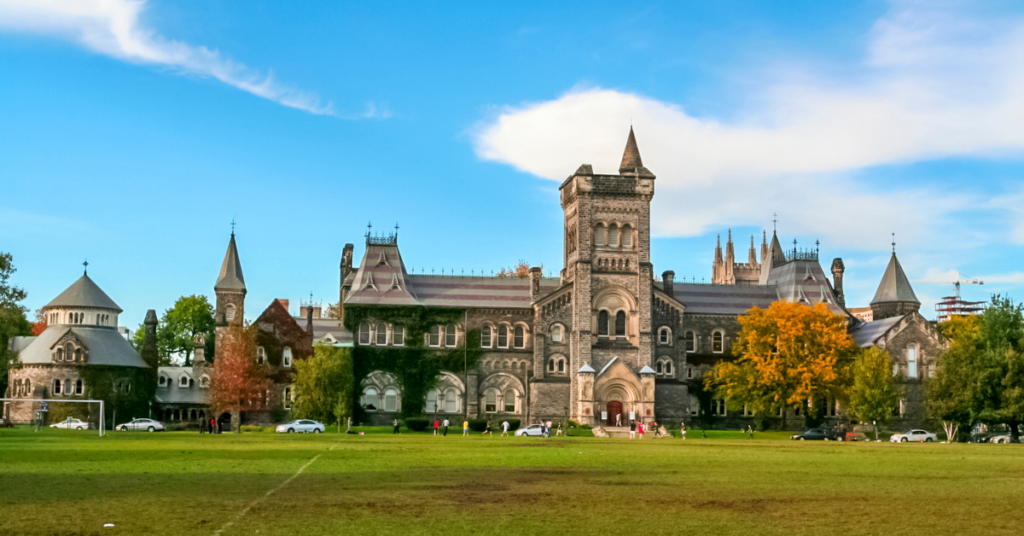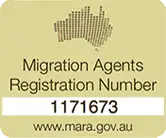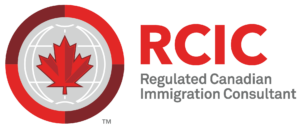
April 8, 2024BY Anindita Banerjee

IRCC is targeting a total of 235,600 new study permits in 2024!
Embarking on a journey to study abroad is an exciting endeavor, especially in a country like Canada known for its welcoming atmosphere and top-notch educational institutions. As you plan your educational adventure for 2024, understanding Canada’s study permit allocations is crucial.
Recently, Canada’s Immigration Minister, Marc Miller, has announced a formal target for approving 235,600 new study permits in 2024.
In this statement, Minister Miller explained how IRCC arrived at the final allocation of study permits for provinces in this statement.
How many study permits will be allocated for 2024?
Canada sets its national cap for study permits based on the number of permits expiring in a given year. This ensures that the number of new international students entering Canada in 2024 matches the number of students whose permits are expiring. For 2024, the target is 485,000 approved study permits.
However, about 20% of students apply for extensions each year, allowing them to stay in the country. To accommodate this, the Immigration, Refugees and Citizenship Canada (IRCC) subtracted 97,000 from the initial target, resulting in a revised goal of 364,000 approved study permits for 2024.
Based on a national approval rate of 60% for study permit applications, the target of 364,000 approved study permits translates into a cap of 606,000 study permit applications received for 2024.
Certain international student categories, such as primary and secondary school students and those pursuing master’s or doctoral degrees, are exempt from the cap. The estimated volume of these groups, around 140,000 based on 2023 data, was deducted from the 2024 target number of approved study permits. This adjustment resulted in a target of 236,000 approved study permits for 2024, which roughly converts to 393,000 study permit applications to be allocated.
What is the province-wise Study Permit Allocation for 2024?
The allocation of study permit applications to provinces and territories is based on their population share. Some provinces and territories may see an increase in the number of international students in 2024 compared to 2023, while others may experience a decrease. To manage growth, adjustments are made to limit increases to 10% compared to 2023 for provinces expecting more students.
Similarly, provinces expecting fewer students receive adjusted allocations to mitigate any negative impact in the first year and support broader regional immigration goals.
IRCC also provides top-ups to provinces with approval rates lower than 60%, ensuring they reach their expected number of approved study permits in 2024.
In total, approximately 552,000 study permit applications have been allocated to provinces and territories under the national cap. These allocations are anticipated to result in approximately 292,000 approved study permits, representing a 28% reduction from 2023 for the groups included under the cap.
Various factors may influence the number of new international students arriving in Canada in 2024. This includes provinces and territories potentially not utilizing their full allocations, changes in approval rates, and in-year adjustments that may be required.
Experience you can trust,
service you can count on.
- Honest, Ethical & Reliable
- Proven track record with over 99% success rate
- Five-star Google and Facebook review rating
Ontario received the highest number of allocations
Ontario, Canada’s most populous province, received the largest allocation of study permits at 235,000. While the province has 530 designated learning institutions (DLIs), it had recently revealed that Ontario will allocate 96 per cent of permit applications to publicly assisted colleges and universities, with the remaining four per cent allotted to Ontario’s language schools, private universities and other institutions. Career colleges will not receive any applications.
Applications will be allocated to institutions based on the following criteria:
- Prioritize programs in the following high-demand areas, including skilled trades, health human resources, STEM, hospitality and child care.
- Cannot exceed the institution’s 2023 permit levels.
- As a final backstop, the ratio of international permits cannot exceed 55 per cent (exclusive of high-demand areas) of the institution’s 2023 first-year domestic enrolment.
| Allocation After Initial Adjustment | Final Allocation After Top-Ups for PTs with Approval Rate Below 60% | |||||
|---|---|---|---|---|---|---|
| Province / Territory | PT Allocations (A) | Projected SPs Approved (B) | % Change from 2023 | Top-Up (C) | Revised PT Allocations with Top-Up (A+C) | Projected SPs Approved (same as B |
| Alberta | 40,894 | 24,537 | 10% | N/A | 40,894 | 24,537 |
| British Columbia | 83,000 | 49,800 | -18% | N/A | 83,000 | 49,800 |
| Manitoba | 15,233 | 9,140 | -10% | 3,420 | 18,652 | 9,140 |
| New Brunswick | 9,279 | 5,567 | -10% | 5,372 | 14,651 | 5,567 |
| Newfoundland and Labrador | 2,365 | 1,419 | 10% | 788 | 3,153 | 1,419 |
| Northwest Territories | 333 | 200 | 4900% | N/A | 333 | 200 |
| Nova Scotia | 12,906 | 7,744 | -10% | 7,472 | 20,378 | 7,744 |
| Nunavut | 333 | 200 | 6567% | N/A | 333 | 200 |
| Ontario | 235,000 | 141,000 | -41% | N/A | 235,000 | 141,000 |
| Prince Edward Island | 2,004 | 1,202 | -10% | 308 | 2,312 | 1,202 |
| Quebec | 72,716 | 43,629 | 10% | 45,202 | 117,917 | 43,629 |
| Saskatchewan | 12,043 | 7,226 | 10% | 3,011 | 15,054 | 7,226 |
| Yukon | 417 | 250 | 205% | N/A | 417 | 250 |
| Total | 486,523 | 291,914 | -28% | 65,572 | 552,095 | 291,914 |
What is the student permit cap?
Minister of Immigration, Refugees and Citizenship Marc Miller announced on January 22 a series of measures to stabilize the influx of international students over the next two years.
The Canadian government recently implemented an intake cap on international student permit applications.
Under this cap, new post-secondary international students must include a Provincial Attestation Letter with their study permit application. The letter is proof of being included in a provincial or territorial allocation within the national cap. Missing the letter may lead to application rejection, so it’s crucial to understand who needs it and who doesn’t.
Provincial Attestation Letter
Who needs a Provincial Attestation Letter?
- Most college and undergraduate-level study permit applicants
- Those in non-degree granting graduate programs
Who doesn’t need a Provincial Attestation Letter?
- Primary and secondary school students
- Master’s or doctoral degree students
- Visiting or exchange students
- in-Canada study permit and work permit holders (includes study permit holders applying for an extension)
- in-Canada family members of study permit or work permit holders
- students whose applications we received before 8:30 a.m. ET on January 22, 2024
If you need any assistance with your Study Permit or have any questions, you can contact our Immigration Consultant in Brampton at +1 289 298 1000 or Book Free Consultation on our website canozvisas.com
Do you want
to Study or Immigrate to Canada or Australia?
We are Canoz Visa Services and our team is committed to provide the highest standards of client service in a friendly environment.

Bakhash Deep Singh
Registered Australian
Migration Agent
MARN: 1171673
He provides comprehensive and personalized services to his clients. He has handled many complex cases for Australian Immigration for his clients and has a very high success rate. He is known for his analytical and strategic approach. He is Originally from India, he has a good command over English, Hindi and Punjabi language.
Do you want
to Study or Immigrate to
Canada or Australia?
We are Canoz Visa Services and our team is committed to provide the highest standards of client service in a friendly environment.







